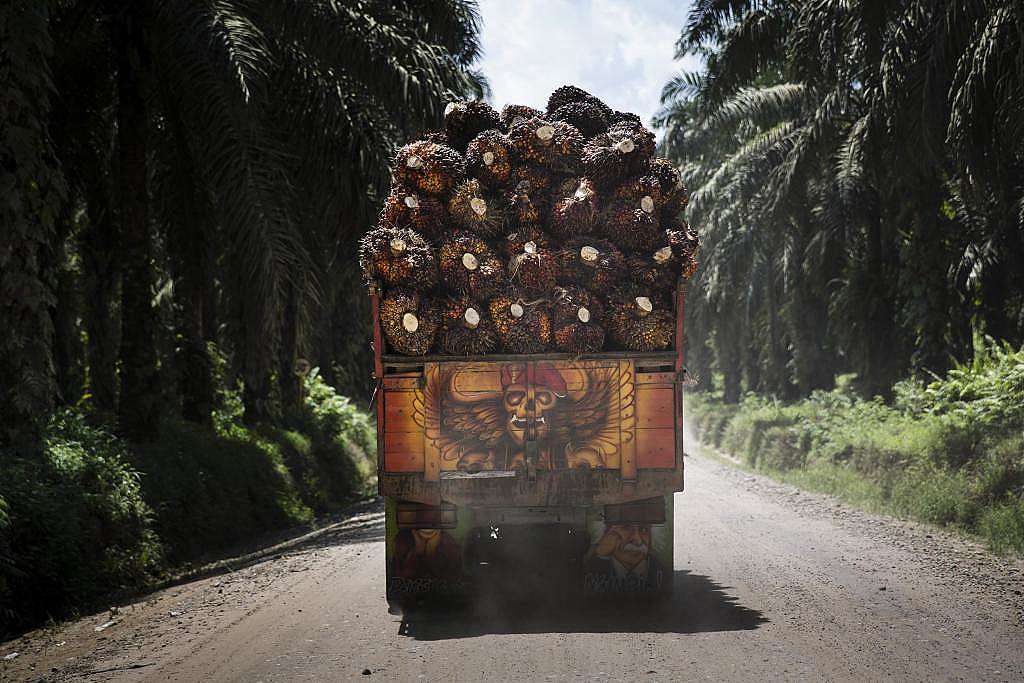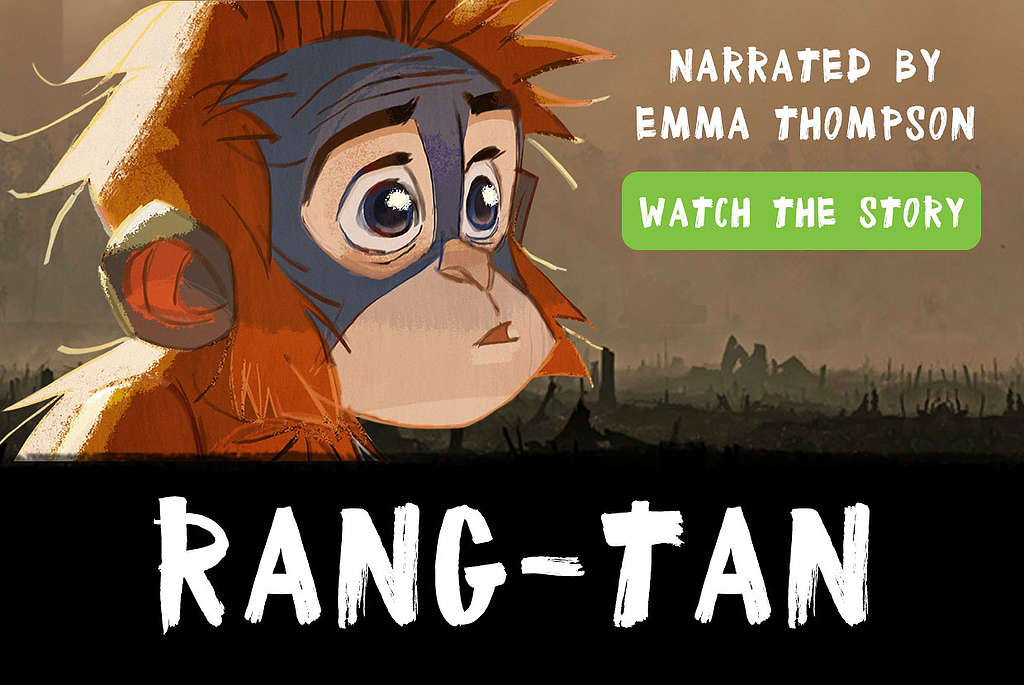Palm oil is used in all sorts of everyday products from shampoo to chocolate, but it’s been disastrous for the world’s forests. Here are five not-so-fun facts about ‘certified sustainable’ palm oil, which is often anything but.

Chances are you’ve heard of palm oil, and you know it has a pretty bad reputation. But what is palm oil – and why are people so up in arms?
1. Palm oil is cheap – and we’re using way too much of it
Palm oil is a vegetable oil – like sunflower or olive oil. It’s made from the fruit of oil palm trees – Elaeis guineensis – which come from West Africa but were taken to Southeast Asia in the 1960s. Palm oil can be produced sustainably – but a lot of it isn’t.
Palm oil is great for big food and cosmetics companies, because it’s cheap and versatile. It’s used in many of the things we use or eat every day: shampoo, bread, toothpaste, detergent and even snacks and chocolate bars.
Not only do roughly half of the processed goods in the supermarket contain palm oil, but millions of tonnes of palm oil are going into the tanks of people’s cars. More than 50% of palm oil coming into Europe is for biofuel.
2. Palm oil is a major cause of forest destruction
The palm oil industry has been a disaster for the world’s forests, wildlife and climate. Palm oil is mostly grown in Indonesia and Malaysia, two tropical countries with large areas of rainforest home to tigers, orangutans and other species that are found nowhere else on earth.
Palm oil companies have been destroying these rainforests because they want more land to grow oil palm trees.
Around 24 million hectares of rainforest were destroyed in Indonesia between 1990 and 2015, according to official figures from the Indonesian government. That’s an area the size of the UK. Palm oil and paper companies are the main causes of this destruction.
3. Palm oil is devastating the world’s wildlife
Destroying forests and replacing them with palm oil plantations wipes out critical habitat for animals that have nowhere else to go. Half of the Bornean orangutan population has been wiped out in just 16 years.
More than three-quarters of Indonesia’s Tesso Nilo national park, home to tigers, orangutans and elephants, has been converted into illegal palm oil plantations.
Globally, 193 critically endangered, threatened and vulnerable species are threatened by palm oil production.
4. ‘Certified sustainable’ palm oil is a con
In 2004, the palm oil industry set up the Roundtable on Sustainable Palm Oil (RSPO). RSPO members have their palm oil ‘certified sustainable’ and brands using this palm oil get to claim that their palm oil is ‘sustainable’.
Most supermarkets in New Zealand and many big consumer brands like Nestlé and Mondelez use RSPO palm oil in their products.
But the RSPO is about as much use as a chocolate teapot. It took 14 years for the RSPO to ban its members from destroying forests – which it finally did in November 2018. It still hasn’t enforced this new rule – and RSPO members are still destroying forests and getting away with it.
RSPO members were right at the centre of Indonesia’s 2015 forest fires crisis. This year, the fires returned – and roughly three-quarters of the fires linked to palm oil companies were on RSPO members’ land. This means that so-called ‘sustainable’ palm oil growers are – in some cases – at the forefront of Indonesia’s environmental crisis.
5. Brands have broken their promise to end deforestation for palm oil
Back in 2010, some of the world’s biggest brands promised to protect forests and clean up the palm oil industry by 2020. That’s less than two months away – and companies are miles away from ending deforestation for palm oil.
Many still don’t even know where their palm oil comes from. In fact, there’s no way for brands to tell how much forest is being destroyed to supply them with cheap palm oil.
Brands have broken their promise to clean up the palm oil industry. To save Indonesia’s rainforests brands have to use less palm oil – and any palm oil they do use must come from suppliers that are 100% deforestation-free.

The time is up for forest-destroying products. We’re calling on big brands like Unilever, Nestlé and Mondelez to keep their promises about dirty palm oil
Take Action


